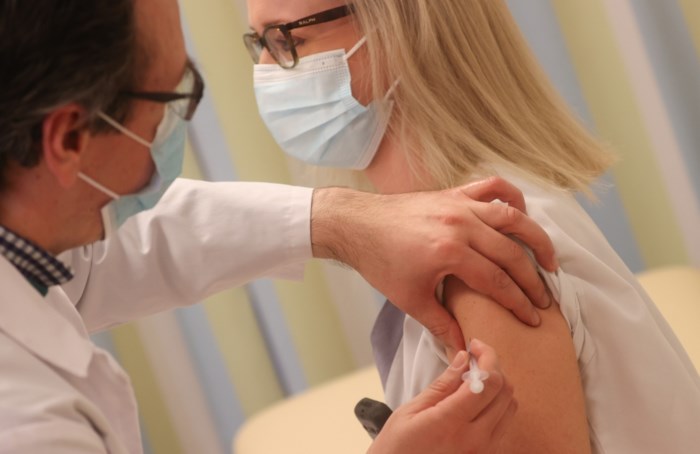Belgium has surpassed the United Kingdom when it comes to the percentage of the total population that has been partly or fully vaccinated, according to figures from 1 August.
The Our World in Data vaccination tracker, which keeps track of the vaccination coverage of all countries on a daily basis, showed that, as of Sunday, the UK has vaccinated 68.95% of its total population, whilst in Belgium, 68.97% of the total population has now been given one or both shots.
"We took off like a diesel and now we are European leaders," epidemiologist Pierre Van Damme (UAntwerpen) said.
"We can really be proud of that, but there is still work to be done," he added.
Although these figures vary from day to day, it is the first time since both countries started rolling out their vaccination campaigns that Belgium has surpassed the UK in this world ranking.
Related News
- These are the Covid symptoms for those already vaccinated
- Hospital admissions rise among unvaccinated, almost 100 in ICU
Belgium has made a large overtake manoeuvre, as six months ago, 15 million British people had already been vaccinated, whilst Belgium had vaccinated just 100,000.
However, between April and August, the vaccination rollout has increased its pace significantly, and at one point, some 660,000 people were being vaccinated in one week in Flanders alone.
Upping the coverage target
According to Van Damme, citing the warnings from the United States that the Delta variant is as contagious as chickenpox, Belgium should aim to vaccinate around 85%-90% of the total population, meaning there is still a long way to go.
Especially in the Brussels Region, the vaccination coverage is not yet high enough, as just 61% of the adult population has received a first dose here.
"In the big cities, vaccination coverage is lagging behind, so now the cities are the biggest challenge," Van Damme said.
Meanwhile, the UK will start offering some 32 million residents the chance to receive a third dose of the coronavirus vaccine from September, meaning the complete vaccination schedule no longer will consist of two vaccine doses.
The main reason behind this change in tactic is the spread of the more infectious Delta variant and the reported decline in the vaccine's effectiveness that is expected over time.
In June, the head of the country’s Vaccination Taskforce Dirk Ramaekers said residents of Belgium will very likely receive a third dose of a coronavirus vaccine before the end of 2021.
"We can say with a fair degree of certainty that we will start administering an additional dose of the coronavirus vaccine at the end of this year, certainly the beginning of next year," he said.

